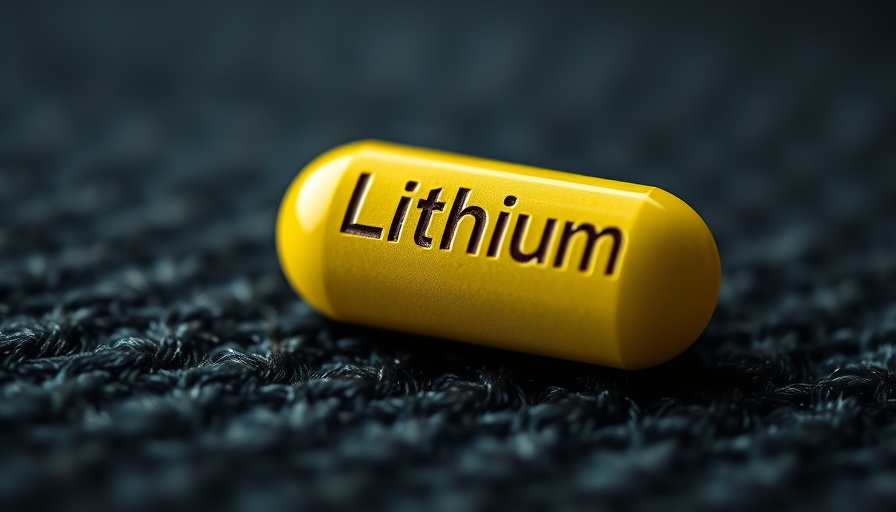
Exploring the Role of Lithium in Alzheimer’s Disease
In recent groundbreaking research, the impact of lithium on cognitive decline has taken center stage with exciting implications for Alzheimer’s disease treatment. Researchers have discovered that low-dose lithium, particularly in the form of lithium orotate, not only reverses cognitive decline in aged mouse models but also addresses critical biochemical changes associated with Alzheimer’s. As the disease continues to affect millions globally, understanding the nuances of lithium's role could be a significant step towards effective therapies.
The Link Between Lithium Deficiency and Alzheimer's
The findings from this study suggest that lithium deficiency shares similarities with Alzheimer’s pathology, particularly at the molecular level. Researchers noted that lower levels of lithium were present in the prefrontal cortex of individuals diagnosed with mild cognitive impairment and Alzheimer’s, compared to those without any cognitive impairment. This correlation raises questions about whether enhancing lithium levels could serve as a therapeutic target.
A Closer Look at Gene Expression and Brain Health
One of the study’s pivotal insights is the relationship between lithium levels and gene expression tied to cognitive health. The research indicated that as lithium levels decreased in the brain, gene expressions associated with neurodegeneration mimicked many features observed in Alzheimer’s disease. This resemblance underscores lithium’s essential function in maintaining cognitive integrity and offers potential pathways for treatment.
Understanding the Mechanism Behind Lithium's Effects
The researchers further explored the mechanisms underlying these findings by observing the presence of lithium within amyloid beta (Aβ) plaques, a hallmark of Alzheimer’s. It was revealed that lithium accumulates in these plaques, potentially isolating it from regions where it may be utilized effectively. Such discoveries prompt a reevaluation of current understandings regarding how metals influence brain health, particularly in relation to cognitive diseases.
Future Research Directions: Potential for Human Application
As promising as these findings are, transitioning from mouse models to human applications will require thorough investigation. The research community is excited about the possibilities of lithium supplementation, especially given its safety profile and accessibility as a treatment option. Future studies will need to focus on optimal doses, long-term effects, and potential side effects as they relate to human subjects.
Mindful Consumption: The Nutritional Value of Lithium
For health enthusiasts and professionals alike, understanding dietary sources of lithium may provide additional methods to enhance cognitive function. While lithium orotate supplements are relatively easy to access, naturally occurring lithium in foods such as grains, vegetables, and drinking water could also be explored further. Incorporating a diet rich in these foods could serve as a preventive measure for cognitive decline.
Addressing Common Misconceptions about Lithium
Despite its potential benefits, misconceptions surrounding lithium often deter individuals from considering it as a viable supplement. It’s essential to clarify that lithium orotate in safe doses poses minimal risk to healthy adults, distinct from the often negative connotation associated with high-dose lithium treatments for bipolar disorder. Education around lithium’s role in cognitive health can help bridge this gap.
Taking Action for Brain Health
With the rising incidences of Alzheimer’s, understanding and acting on early signs of cognitive decline can empower individuals to take charge of their health. Emphasizing lifestyle changes, including regular exercise, a balanced diet, and cognitive training, can prove beneficial alongside discussions about the clinical potential of lithium supplementation. Remember to consult healthcare providers when considering any new supplements to ensure safe practices.
The exploration of low-dose lithium is an exciting frontier in Alzheimer’s research. Those interested in maintaining cognitive transparency and mental clarity should remain informed about the developments in this area. As we uncover more possibilities through research, we stand at the brink of possibly transformative strategies in combating this devastating disease.
 Add Row
Add Row  Add
Add 




Write A Comment